Hand-made, hard-wearing linen.
100% grown, woven and sewn in France.
Lot No. 1 - The Apron
First 50 orders at discount price of £99. Small batch French linen apron. Distinctive central band, double pockets, reinforced stitching and hand-sewn details. Made from high quality 140g linen, and meticulously crafted in a small French studio. Each piece is here to work, for a long long time. Limited 100 piece production run.
Share
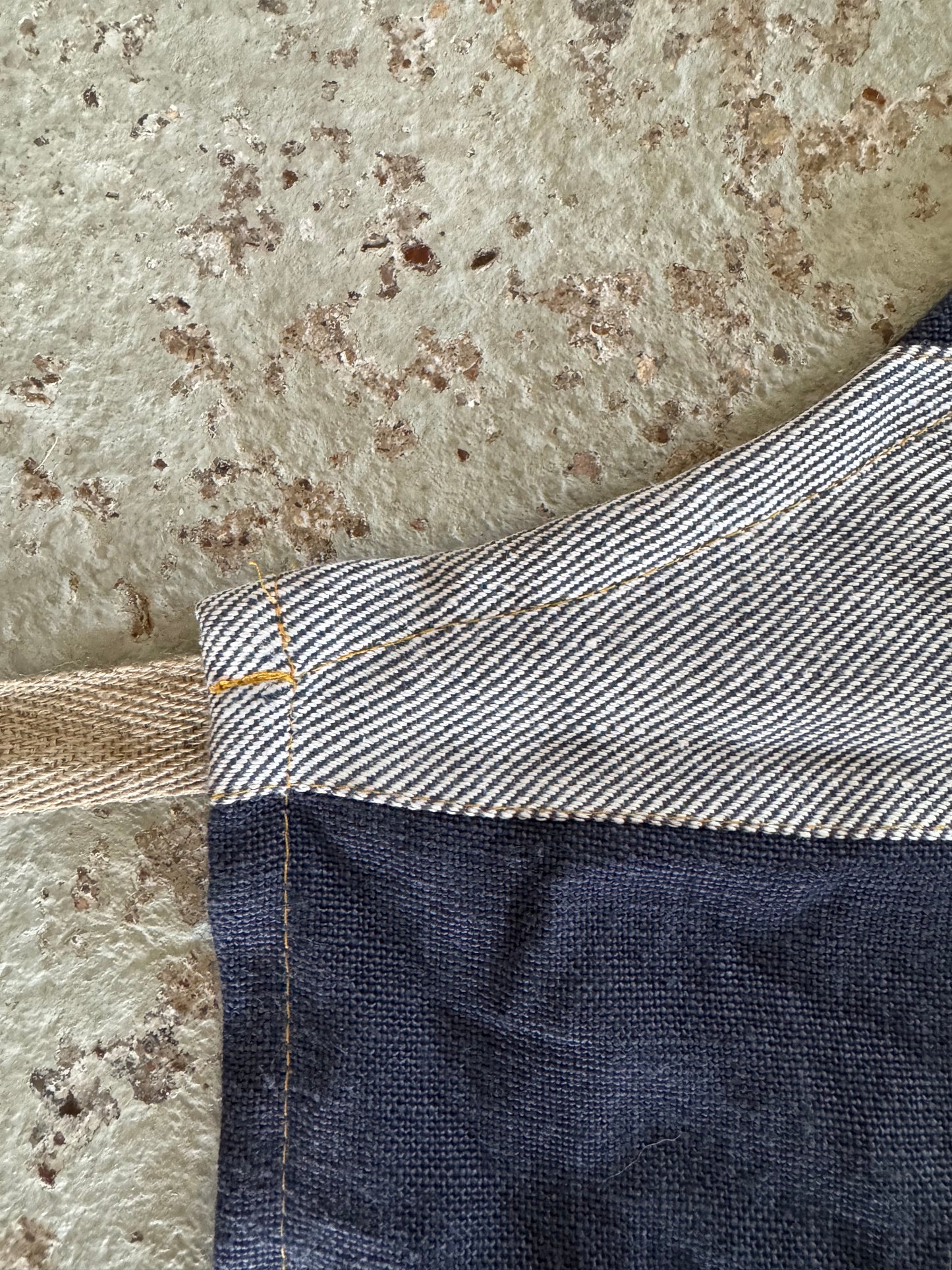
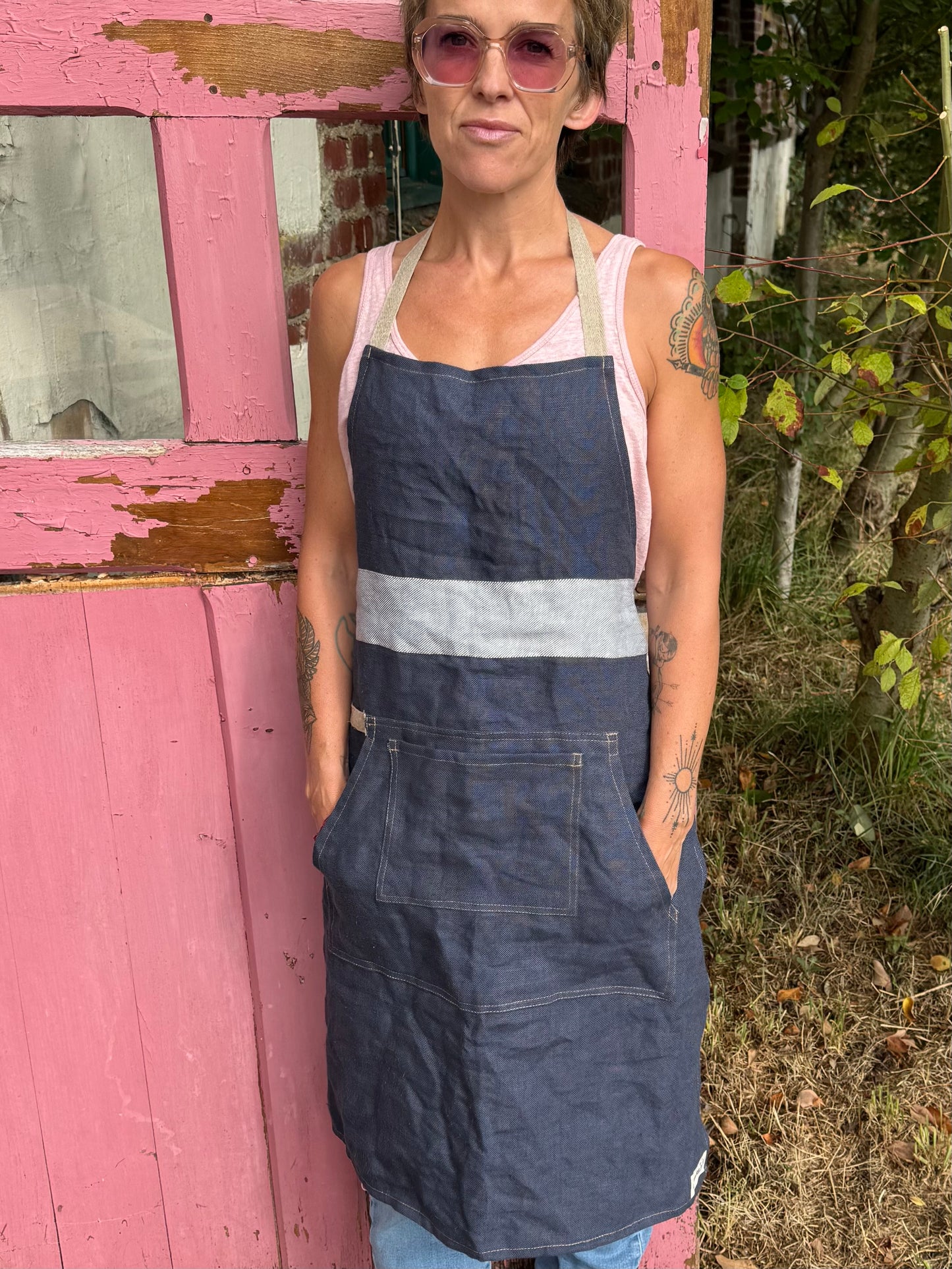
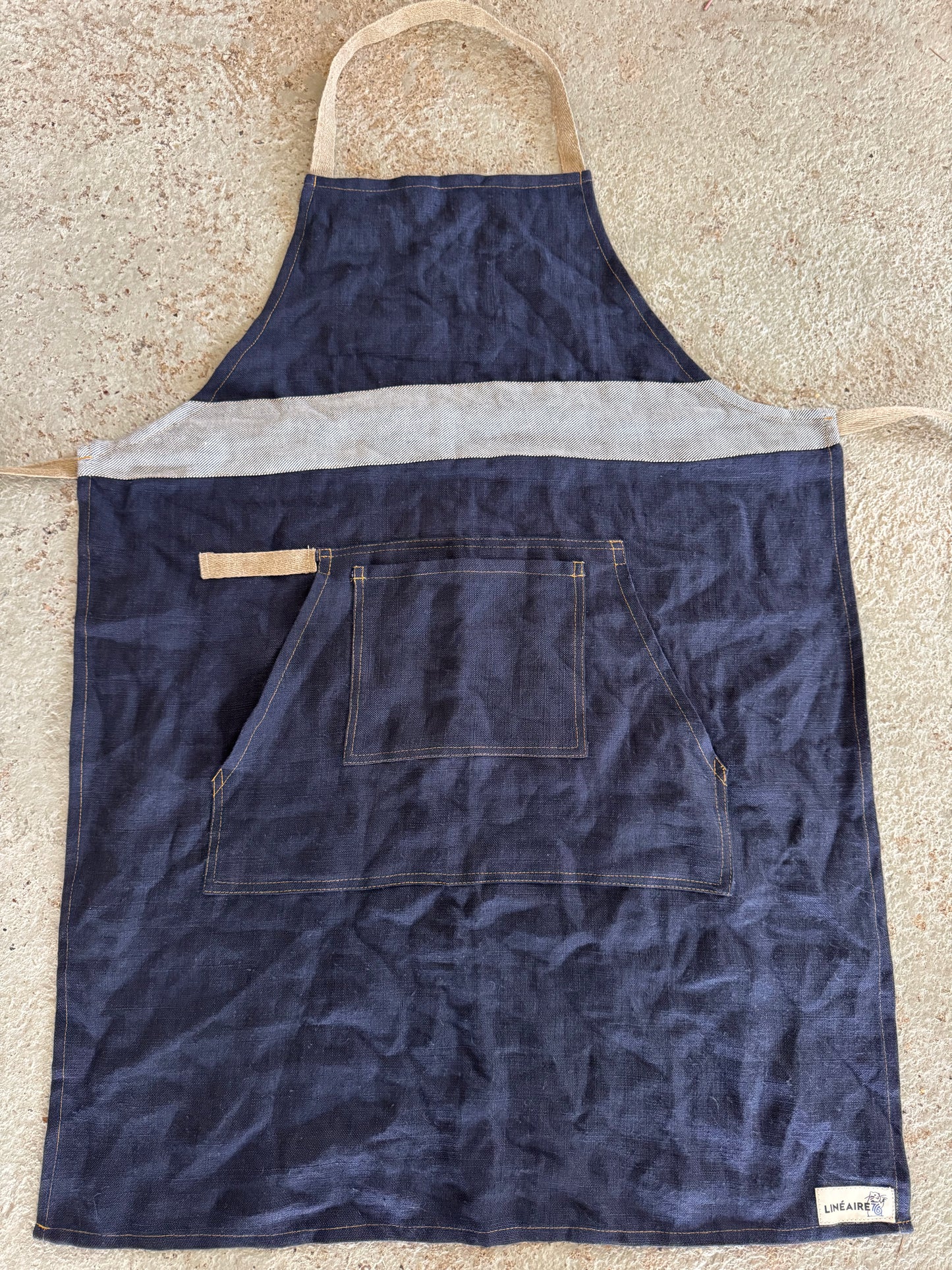
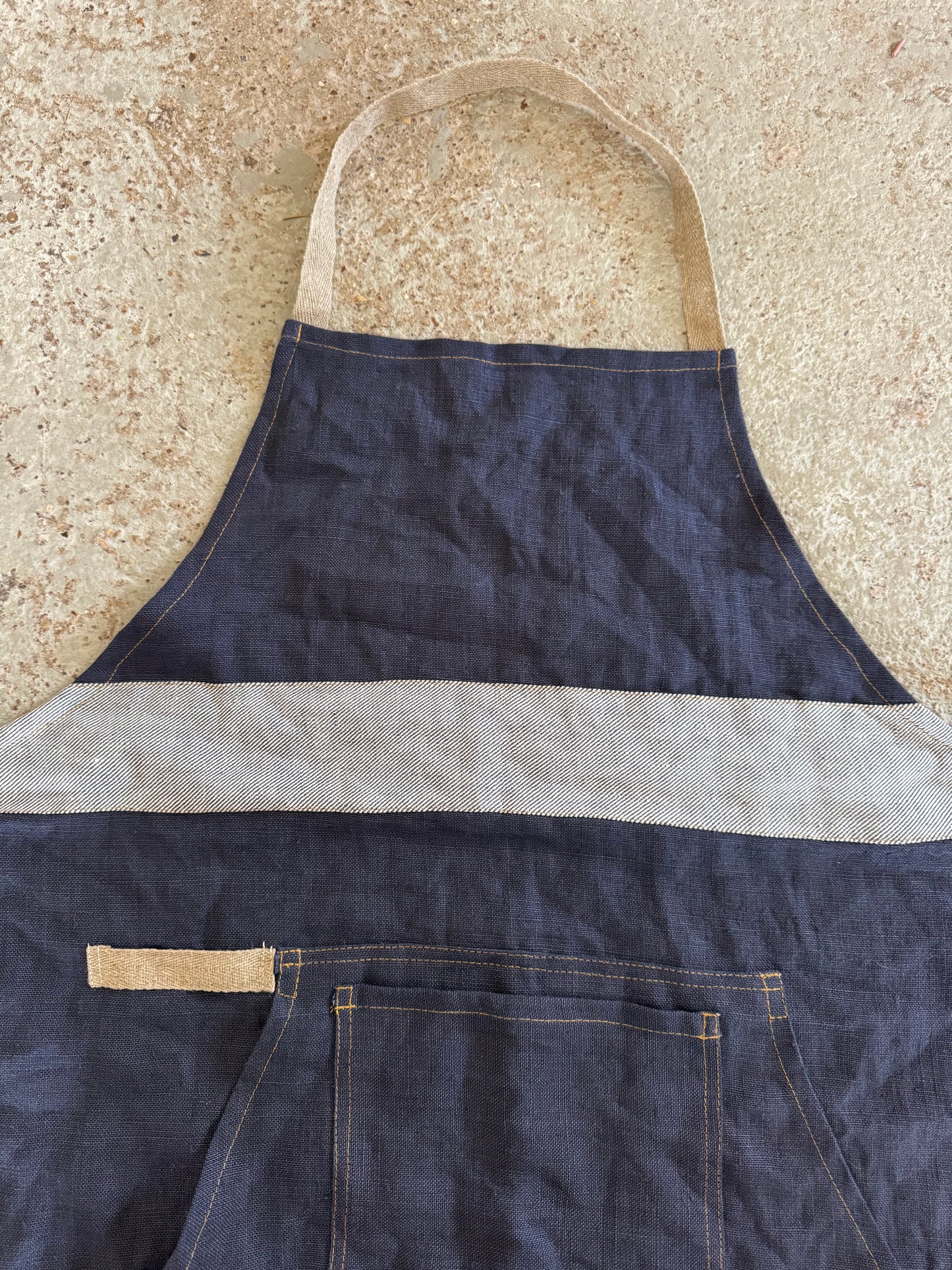
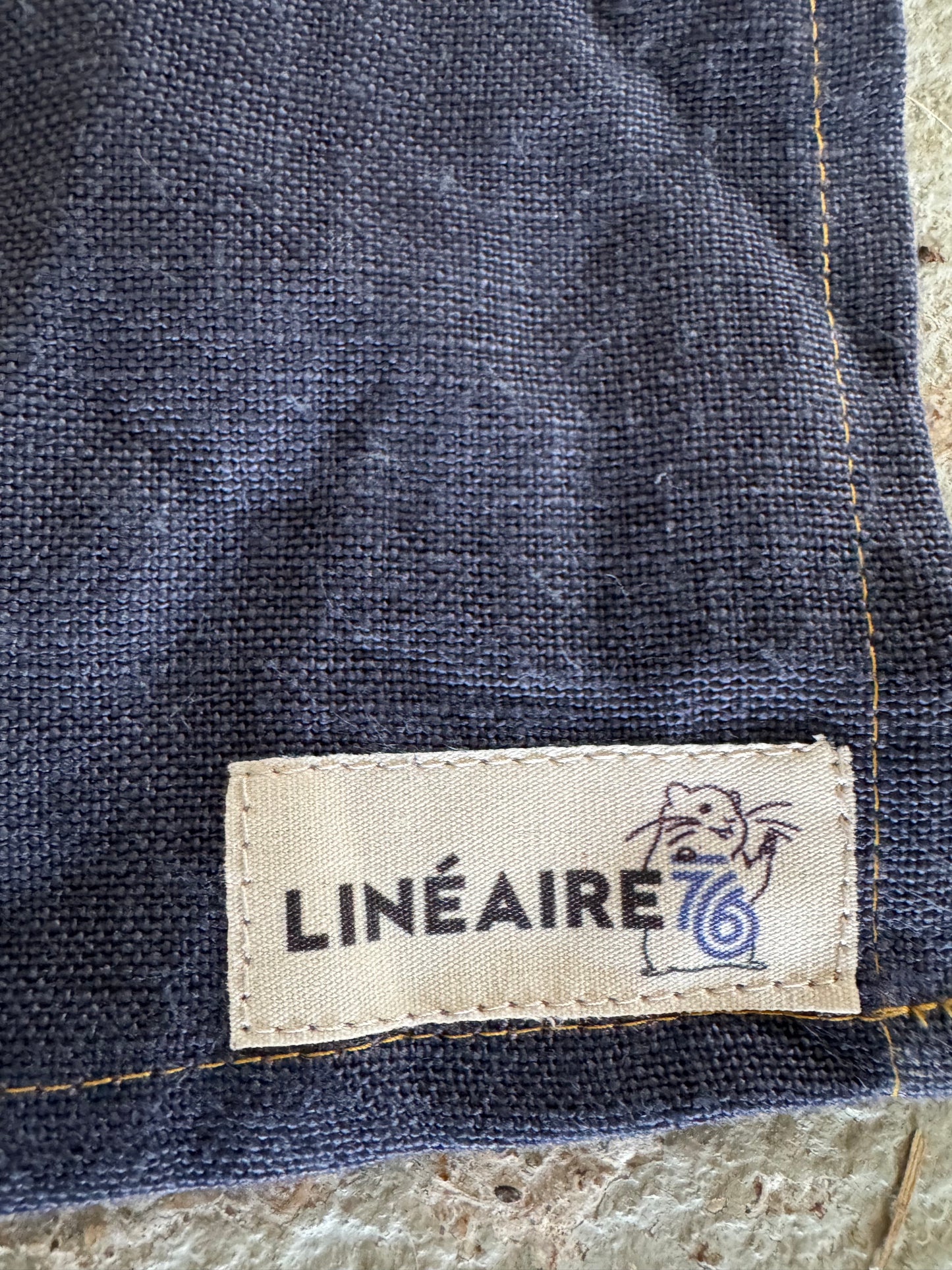













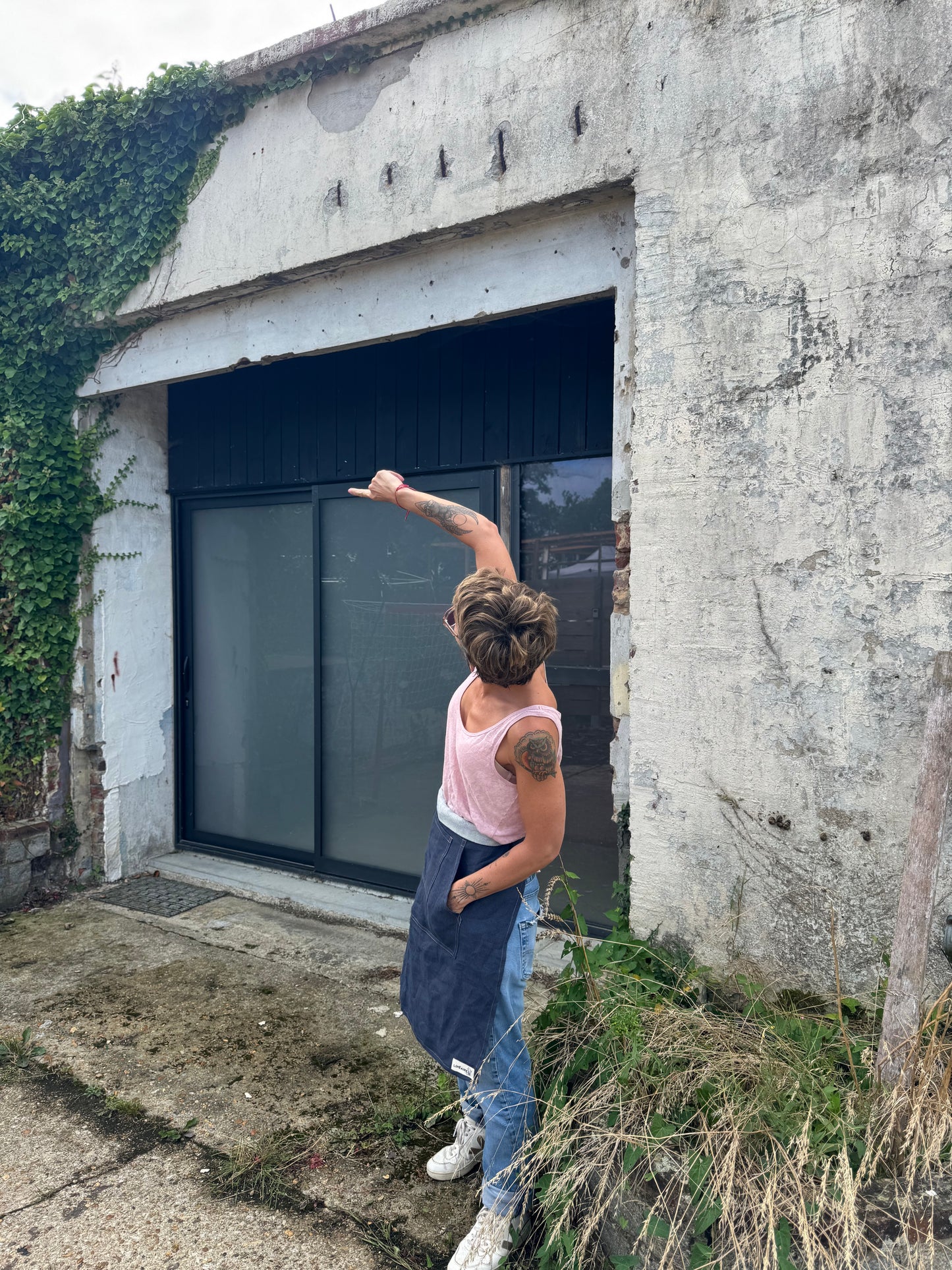
My Store
Lot No. 2 - The Tea Towel
Except, it's more than a tea towel. Small batch French linen. Distinctive band in blue or beige stripes, hanging loop, reinforced stitching and hand-sewn details. Made from high quality 140g linen, and meticulously crafted in a small French studio. Each piece is here to work—polishing glasses, covering bread wrapping tools—for a long long time. Limited 100 piece production run.
Share












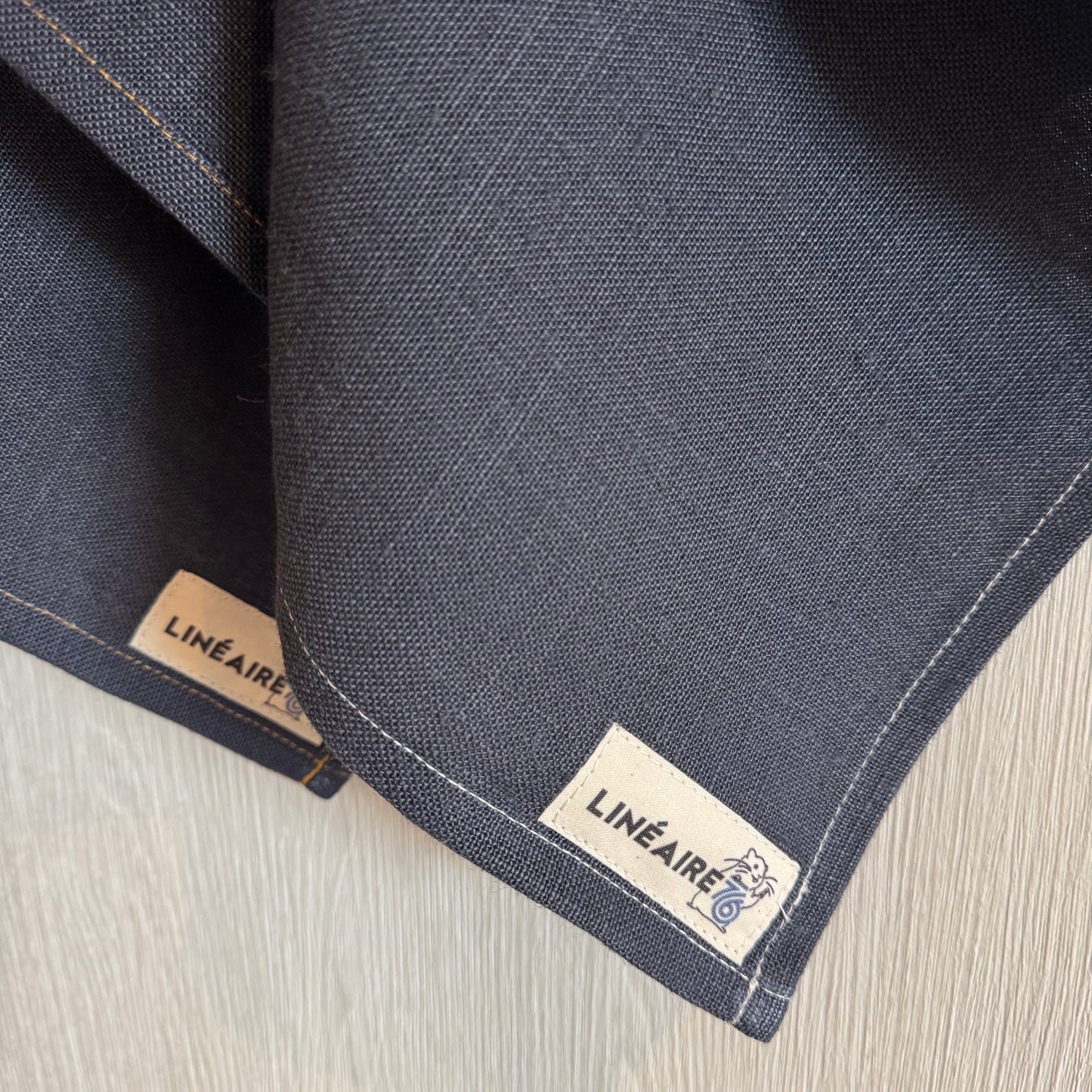
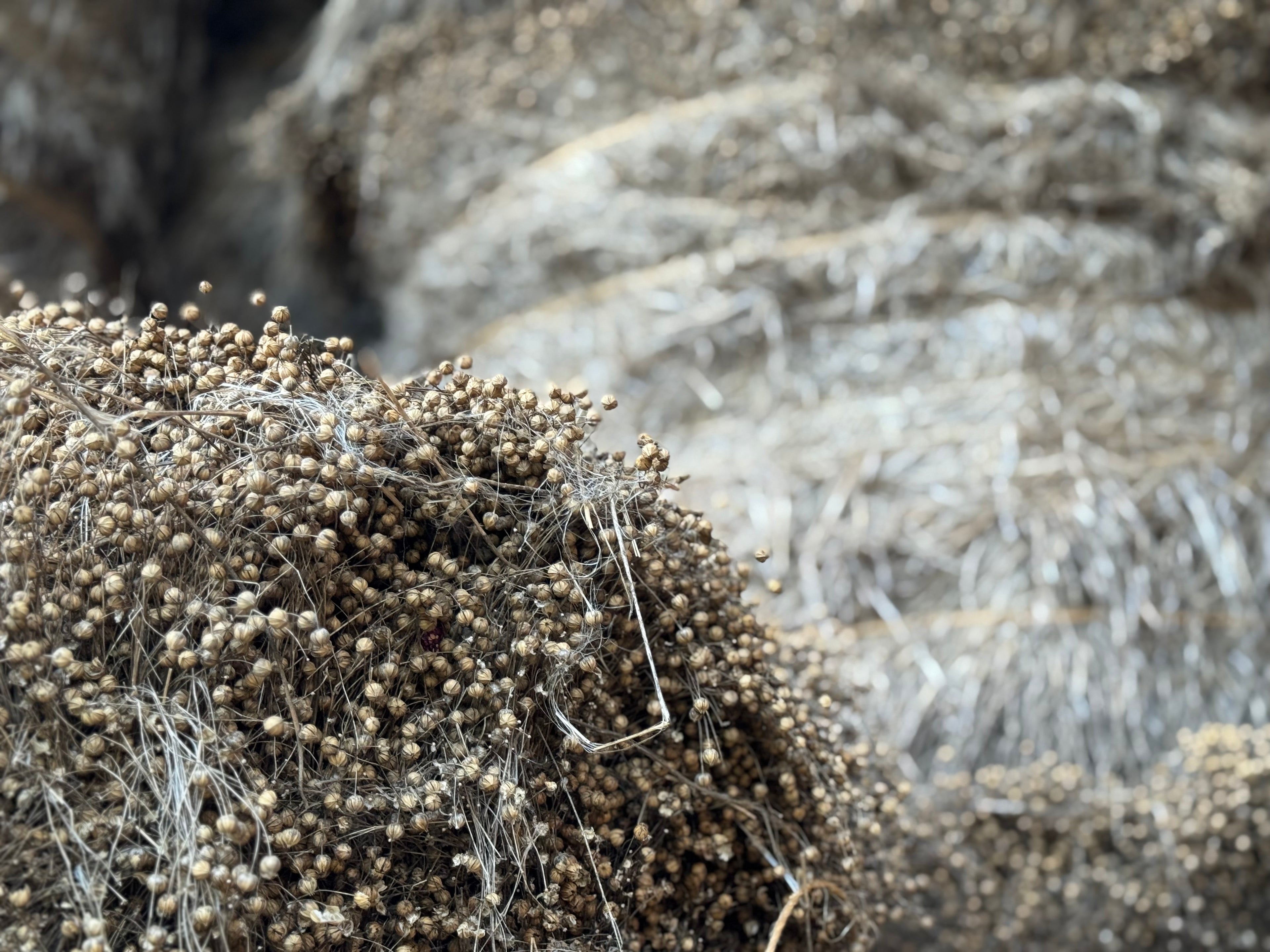
Make it right. Make it local. Make it last.
Behind every Linéaire 76 piece is a simple principle: make it right, not cheap. Our linen travels just 100 kilometres from flax seed to finished product—all within northern France. It costs 25 times more to produce linen items in France than in Asia. Every person in this chain, from the farmers tending the flax fields to the artisans hand-finishing each item, earns more than a living wage. Tended and made with love, to last.
How each item is made
-
The fabric
Find themLemaitre Demeestere has been producing linen since 1835, using flax from Normandy and Northern France.
-
The production
Shop MijuinMijuin is a Normandy company that not only makes their own beautiful linen products, but also produces items for other folk too.
-
The labels
See themLabel Francaise create labels for companies big and small across France. They treat the details seriously, which we love.
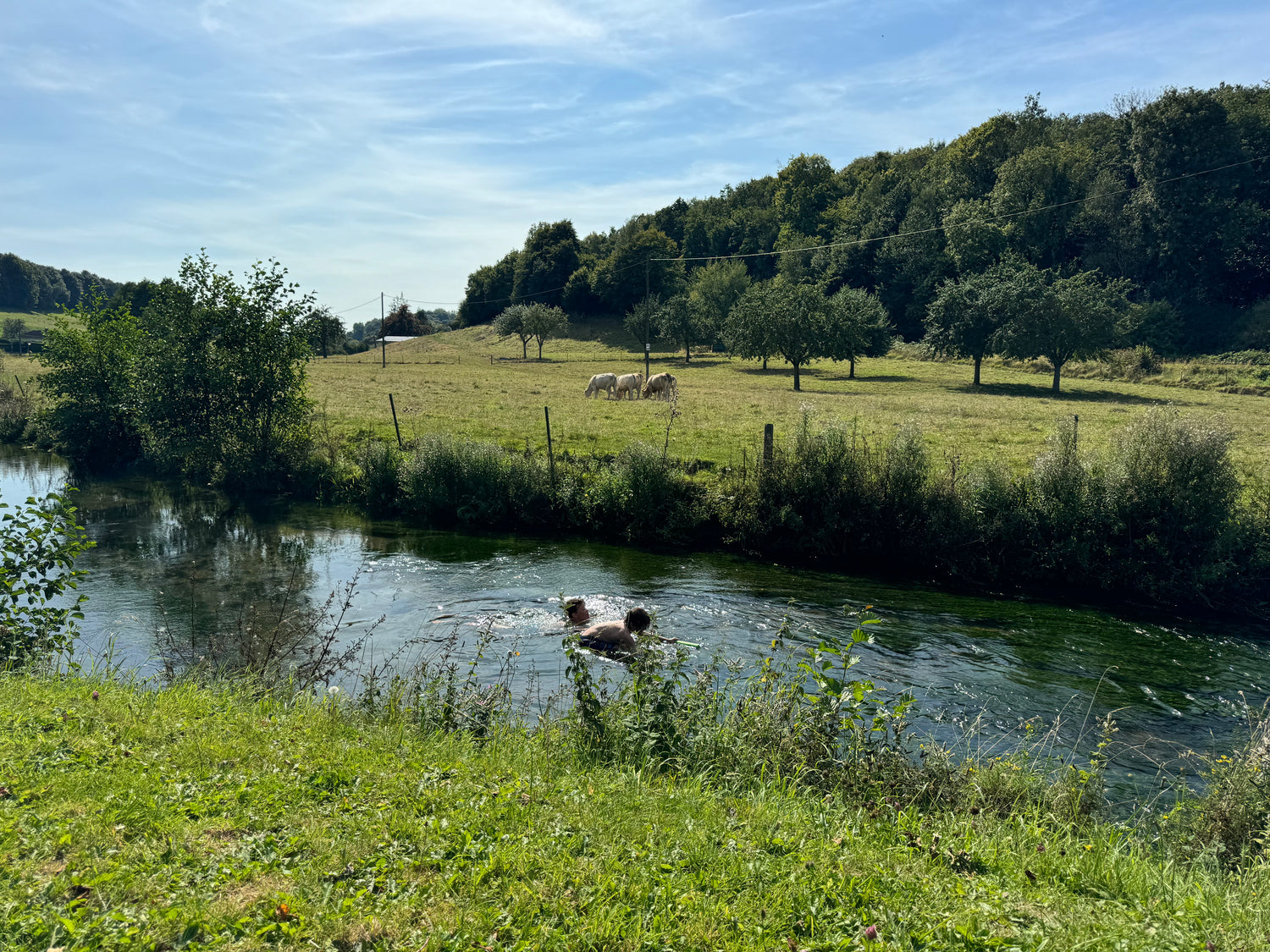
The Region
Department 76
Welcome to Seine-Maritime in Normandy, northern France, where you'll find Dieppe, Rouen, cider, cows, the detritus from WW2, and hundreds of thousands of acres of lin (flax). In fact, the Normandy region as a whole accounts for about 60% of world flax production, with Department 76 being a significant contributor. Let's call it the world's linen basket.
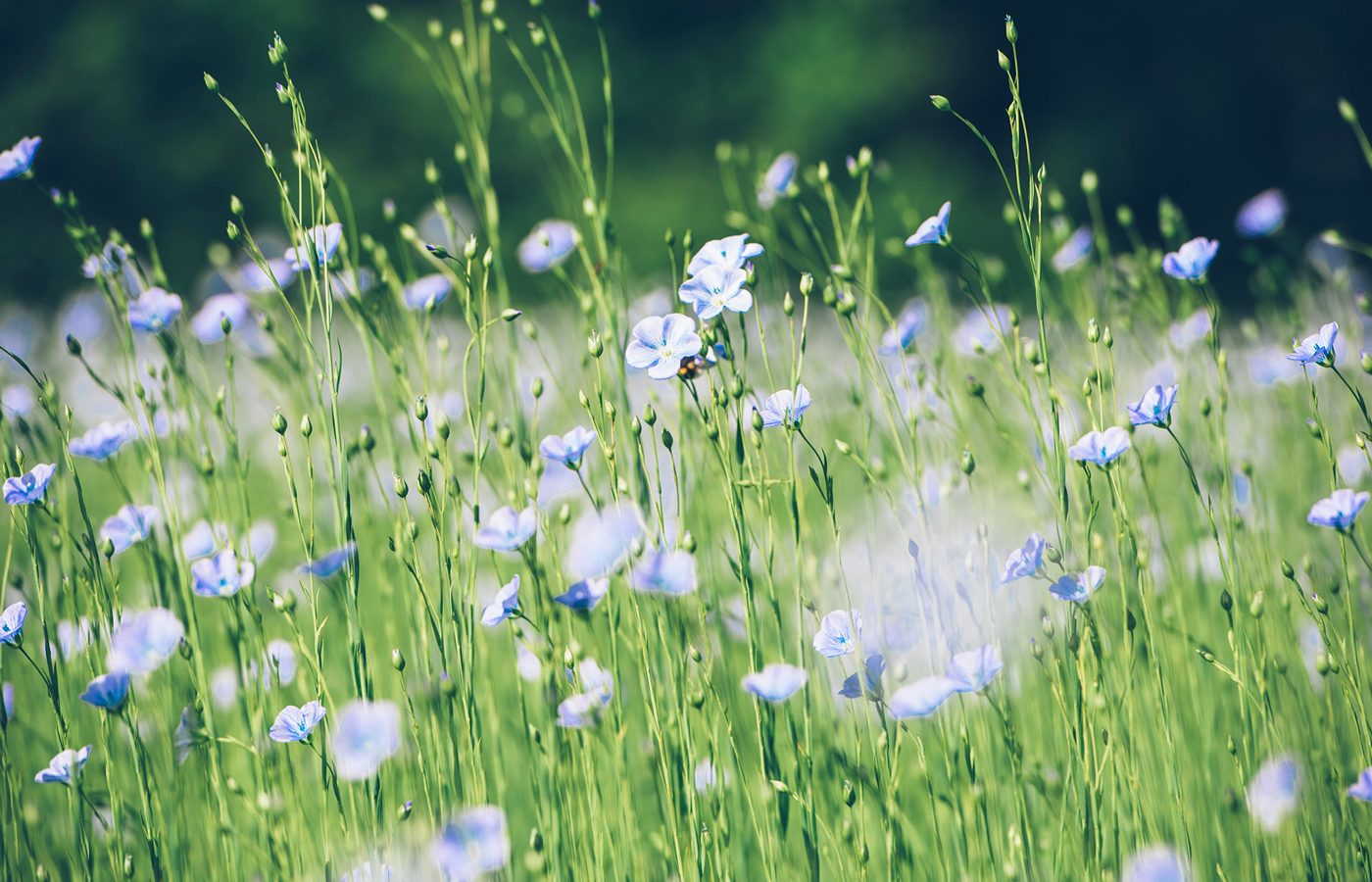
The Material
Linen
Linen comes from flax. And flax isn't new to Normandy— it has defined the landscape since the 13th century. If you visit in June, you can cycle the Route du Lin and meander through hundreds of blue-flowered flax fields. The region's damp, cool climate produces exceptionally strong fibres, making Norman linen prized for its durability. Linen isn't just for fancy things—this tough, no-nonsense fabric gets softer with each wash yet outlasts almost everything else—practical stuff that local families have transformed into workwear and textiles for generations with centuries-old techniques.


